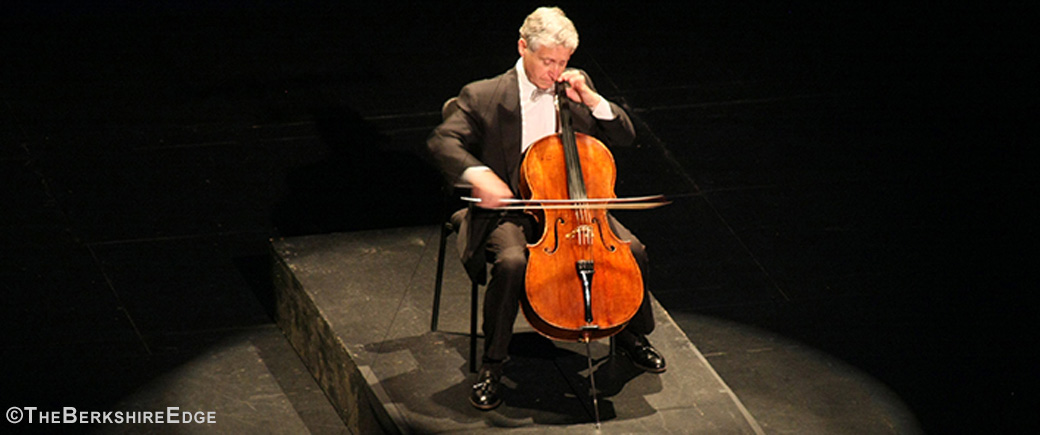Close Encounters with Music
How does the creative process begin? Where does art come from? How does music formulate in the brain? It is not a rational process that can be neatly explained.
But that is exactly what musician and Jungian analyst Melinda Haas will try to do Sunday, November 10th at 3PM at Lenox’s Seven Hills Inn when she presents the opening program in Close Encounters with Music’s “Conversations with …” series. Haas will discuss Three Gentlemen from Vienna; A Viennese Buffet of Genius, Neurosis and Melodrama based on a paper she presented this past summer in Vienna at the International Association of Analytical Psychology Congress.
For centuries, Vienna was the glittering capital of the Hapsburg dynasty. The presence of the Imperial Court acted as an incubator for musical and artistic achievement. Great composers not born there quickly gravitated to the city with its coterie of eager patrons. It is not surprising then, that Viennese musical tradition was passed from one great composer to the next, Mozart to Beethoven, Schubert to Mahler and onward far into the 20th century.
For the artists it was a hotbed of creativity, melodrama, exalted music, rejection, love and loss. They each brought to it inner demons and drives that propelled their careers for better or worse. Haas is well suited to explore this interface between music and psyche as her research has focused on the “inner other”—displacement, isolation and outsider status as a rite of passage that accompanies the creative act. A musician herself, she was accompanist for the Graham and Limón Dance companies before becoming a Jungian analyst.
“Whether I am working as a psychodynamic psychotherapist or specifically as a Jungian analyst, I am always mindful of the power of the unconscious,” she writes. “It will exercise its might whether invited or not. … As a Jungian analyst, I look at material through a symbolic lens. … I am a musician as well as a therapist/analyst (and) write about the relationship between music and the psyche.”
She will look at three artists’ journeys—Beethoven, Schubert and Mahler—with Vienna as the backdrop.
She will take special note of their late music, when each composer juxtaposed drama and joy, suffering and elation in their end-of-life oeuvres.
Ludwig van Beethoven, the first-born of the trio, was also the longest lived and, in his mature works, utterly changed the musical world, “jolting music out of itself,” according to Philip Clark, writing for Gramophone in 2014. In his Third Symphony Eroica (“Heroic”), Beethoven used broad strokes of sound to introduce listeners to the realm of the unconscious in a symphony that was bigger and longer than any symphony had been before.
Stubborn, brusque, arrogant, Beethoven’s personality was as pronounced as his music, even before his hearing began to deteriorate in mid-life. Perhaps because of the severe discipline doled out by his abusive father, Johann, his first teacher, Beethoven exhibited obsessive tendencies—including his consumption of coffee made with exactly 60 coffee beans.
The loss of hearing that began when he was only 30 further conflicted this passionate composer, pushing him into social isolation. Joseph Straus, author of Extraordinary Measures: Disability in Music, says that during Beethoven’s life, his deafness was thought to have had an exclusively negative impact on his work. But he argues that Eroica can also be seen as a musical working-out of this issue.
No matter how his late-career works were received by his public, he was still Godlike and an inspiration for Franz Schubert. Apparently, the two never met though living cheek-by-jowl in Vienna and Schubert, who eventually became almost as popular as Beethoven in Vienna, consciously eschewed mimicking his idol. Indeed, according to Paul Reid, author of The Beethoven Song Companion and former Chairman of the Schubert Institute, Schubert blamed Beethoven for the trend towards “Bizarrerie” in music. Still, in his later music Schubert occasionally echoed Beethoven works.
Schubert’s internal angst may have stemmed from his conflicted relationship with the Catholic Church. Raised in an atmosphere of strict piety, he later embraced elements of humanism, pantheism and Romantic Neoplatonism. Like many artists in the era of Romanticism, Schubert found the old theological certainties inadequate and at times he tended towards agnosticism.
Twenty-six years younger than his musical idol, Schubert died at age 31, only 20 months after Beethoven, perhaps from the combined effects of syphilis and poisoning by the mercury then used to treat it. Many music experts believe he was only mid-career and speculate about what effect his already brilliant music would have had if he had lived longer.
While Schubert was an early Romantic composer, compulsive workaholic Gustav Mahler’s composing career blossomed at the end of Romanticism. Mahler was a bridge between 19th-century Austro-German tradition and the modernism of the early 20th century. As a conductor, his brilliance was always recognized, but during his lifetime his compositions were never popular. But following World War II, he became one of the most frequently performed and recorded of all composers, a position that continues today.
Born into a Jewish family, Mahler converted to Catholicism to secure the post of conductor of Vienna Philharmonic Orchestra. During his 10 years in Vienna Mahler experienced regular opposition and hostility from the anti-Semitic press.
He was unhappily married to musician and composer Alma Schindler—who he rather autocratically forbade to engage in any creative work. The Mahlers lost one of their two daughters at age 4, but, grief-stricken, he pressed on with his composing career.
When Mahler left Austria in 1907 to become chief conductor at the Metropolitan Opera and later at the New York Philharmonic, his farewell note was ripped off the notice board. He died in 1911 at age 50, leaving his 10th Symphony unfinished. He never lived to see his music completely silenced under Nazism.
Tickets for Haas’ talk are $20, include light refreshments and are available on the Close Encounters website by clicking on the link below, calling 800-843-0778 or at the door.

